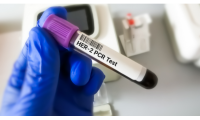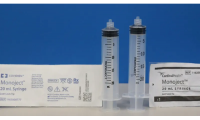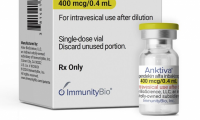-
FDA Approves New Herceptin Biosimilar for the Treatment of Multiple HER2-Overexpressing Cancers
- Source: https://www.pharmexec.com/authors/don-tracy-associate-editor
- 94
- May 4, 2024
-
Drug Licensed from Sanofi Becomes First FDA-Approved Therapy for Ultra-Rare Primary Immunodeficiency
- Source: https://medcitynews.com/author/fvinluan/
- 92
- May 4, 2024
-
Cardinal receives FDA warning letter over unapproved syringes
- Source: https://www.medtechdive.com/news/cardinal-warning-letter-unapproved-syringes/714934/
- 93
- May 4, 2024
-
Senseonics gets FDA clearance to pair CGM implant with insulin pumps
- Source: https://www.medtechdive.com/news/senseonics-fda-clearance-integrated-cgm/714804/
- 80
- May 3, 2024
-
FDA approves X4 Pharmaceuticals’ WHIM syndrome drug
- Source: https://www.pharmaceutical-technology.com/news/fda-x4-syndrome-drug/?cf-view
- 106
- May 3, 2024
-
Lupin receives EIR from USFDA for its Aurangabad manufacturing facility
- Source: https://www.lupin.com/lupin-receives-eir-from-us-fda-for-its-aurangabad-manufacturing-facility/
- 97
- May 3, 2024
-
Medtronic wins FDA approval for Inceptiv closed-loop spinal cord stimulator
- Source: drugdu
- 76
- May 2, 2024
-
FDA Approves Immunotherapy That Can Spare Bladder Cancer Patients From Radical Surgery
- Source: https://medcitynews.com/author/fvinluan/
- 109
- May 2, 2024
-
FDA Approves Pfizer’s Beqvez for the Treatment of Adults with Moderate to Severe Hemophilia B
- Source: drugdu
- 84
- May 1, 2024
-
Pfizer scores FDA nod for hemophilia B gene therapy, will charge $3.5M per dose
- Source: drugdu
- 86
- April 30, 2024
your submission has already been received.
OK
Subscribe
Please enter a valid Email address!
Submit
The most relevant industry news & insight will be sent to you every two weeks.













